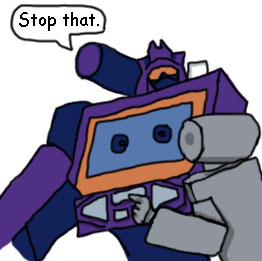We have a salad vending machine at work. It was the cause of some excitement. “It’s like magic!” a co-worker said. “Robots making salad!”
Except, every morning, a cafeteria worker was dicing up the ingredients to the machine’s specifications, and another worker came and filled the machine and cleaned it. To them, this isn’t magic, it’s just taking the place of the last step – shoveling the goods into the boxes to serve.
I remember a scene from the Dungeons and Dragons Saturday morning cartoon. The cavalier character gets the Dungeon Master’s powers for a day, and one of the first things he does is say, “I’m thirsty,” and make a fresh fountain of water appear. “Ah,” the Dungeon master admonishes, “but bringing water here takes it away from somewhere else.”
That stuck with me, and it makes me think about something missing in many fantasies: The COST of the magic.
I don’t mean magic systems where casting a spell makes you bleed or you have to, I dunno, perform elaborate rituals or give something personal up – I mean simply that magic itself is about avoiding the work you’d normally have to do, and everyone knows that when you avoid work, you’re really giving it to someone else.
Where does the material come from that builds your magic wall? Who suffers because the stone isn’t where it was? Who doesn’t eat because you made food appear?
Magic and automation share this in common. Someone is still doing the work, but they are rendered invisible.
Automation relies on human labor. Even the robot that builds a car has to have someone bolt itself to the floor in the right place, and make sure the parts come to it in order.
Even AI is really human labor. Usually poorly compensated or unpaid, usually from the global south, cleaning up metadata and flagging feet and hands. Google pays contracting firms who hire “ghost workers” who test and adjust search results, flagging obscene content and suffering the psychic wear and tear of viewing it over and over, while we sit oblivious, impressed by “the algorithm.”
As a child, I reacted poorly to my first fishing outing, saying I liked my meat from the grocery store, where it was clean and meat-shaped, not an animal. But it was an animal, just other people had done the work of killing it and cutting it up. I remember my dad saying something about, “Meat doesn’t just magically appear in the grocery store.” And yeah, I vowed to be a vegetarian for about a week.
Is it enough, to be aware? To journey under Omelas? We can’t exactly walk away. Every day, I benefit from food grown by migrant workers living in slave-like conditions. Even if I make sure to only buy things marked as “organic” and “local.” Those terms aren’t as policed as you think, and our labor laws are circumvented time and again by massive loopholes. “Independent contractors” who are neither independent nor writing their own contracts, prison labor, and importing from wholly-owned subsidiaries not beholden to US law.
I don’t know. What I do know is, we can no longer afford not to think about where our stuff comes from, and where it goes when we’re done with it.


